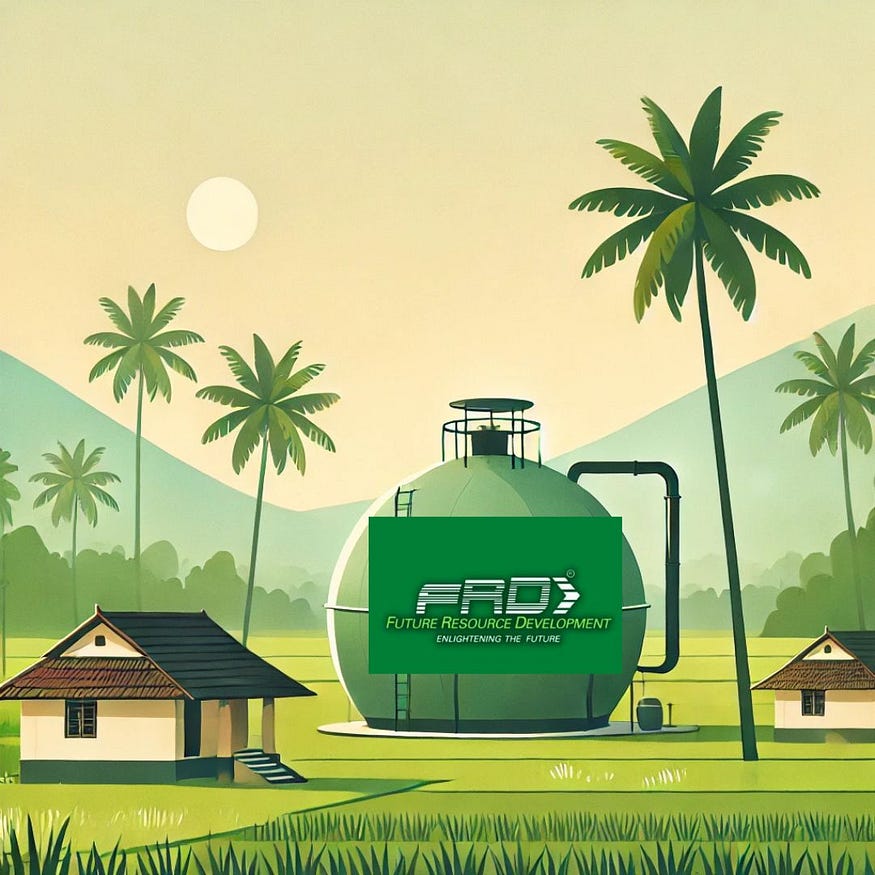Biogas in Kerala: A Guide to Efficient Biogas Purification

Biogas in Kerala is emerging as a sustainable solution for managing organic waste and generating renewable energy. With Kerala’s emphasis on eco-friendly practices, biogas purification is becoming increasingly important to enhance the usability and efficiency of biogas. This process not only improves energy output but also contributes to reducing environmental pollution. Here’s a comprehensive look at biogas purification and its role in Kerala.
What is Biogas Purification?
Biogas, a renewable energy source produced through anaerobic digestion of organic waste, is composed of methane (CH₄), carbon dioxide (CO₂), hydrogen sulfide (H₂S), and water vapor. While methane is the primary energy component, the presence of impurities like CO₂ and H₂S affects its efficiency. Biogas purification is the process of removing these impurities, producing high-purity biomethane. This purified biogas is versatile and highly efficient for various applications in Kerala.
The Importance of Biogas Purification in Kerala
With its dense population and eco-conscious mindset, biogas in Kerala plays a significant role in managing organic waste while addressing energy needs. Untreated biogas is often underutilized due to its lower efficiency and corrosive impurities. Purifying biogas offers numerous advantages:
- Cleaner Cooking Fuel: Purified biogas ensures efficient combustion and prevents burner corrosion in households.
- Enhanced Power Generation: High methane content improves the performance of biogas-fueled generators.
- Transportation Fuel: Purified biogas, compressed into Compressed Biogas (CBG), serves as a cleaner alternative to Compressed Natural Gas (CNG).
By focusing on purification, Kerala can maximize the potential of its biogas projects.
Methods of Purifying Biogas in Kerala
- Water Scrubbing
Removes CO₂ and H₂S by dissolving them in water under pressure, leaving purified methane. - Pressure Swing Adsorption (PSA)
A popular technique in Kerala’s industrial biogas plants, it separates methane using advanced adsorbents. - Membrane Separation
Compact and efficient, this technology uses membranes to filter impurities, making it suitable for urban areas in Kerala. - Biological Purification
Leverages microorganisms to remove H₂S naturally, aligning with Kerala’s eco-friendly goals.
Benefits of Biogas Purification for Kerala
- Improved Efficiency: Purified biogas in Kerala offers higher calorific value, reducing energy costs.
- Environmentally Friendly: Cleaner biogas means fewer greenhouse gas emissions.
- Energy Independence: Localized biogas plants reduce dependency on conventional energy sources.
- Economic Growth: Purified biogas creates opportunities for new industries and job creation in Kerala.
Future of Biogas in Kerala: The Role of Purification
To promote biogas in Kerala, stakeholders must invest in modern purification systems and technologies. This involves collaboration between the government, private companies, and local communities to:
- Establish purification units at community biogas plants.
- Provide incentives for setting up biogas purification systems in households and industries.
- Educate the public about the benefits of purified biogas through awareness campaigns.
Conclusion
Biogas in Kerala has the potential to transform waste management and energy production. However, its full potential can only be unlocked through effective purification. By adopting advanced biogas purification techniques, Kerala can lead the way in sustainable energy, ensuring a cleaner and greener future for all.

Comments
Post a Comment